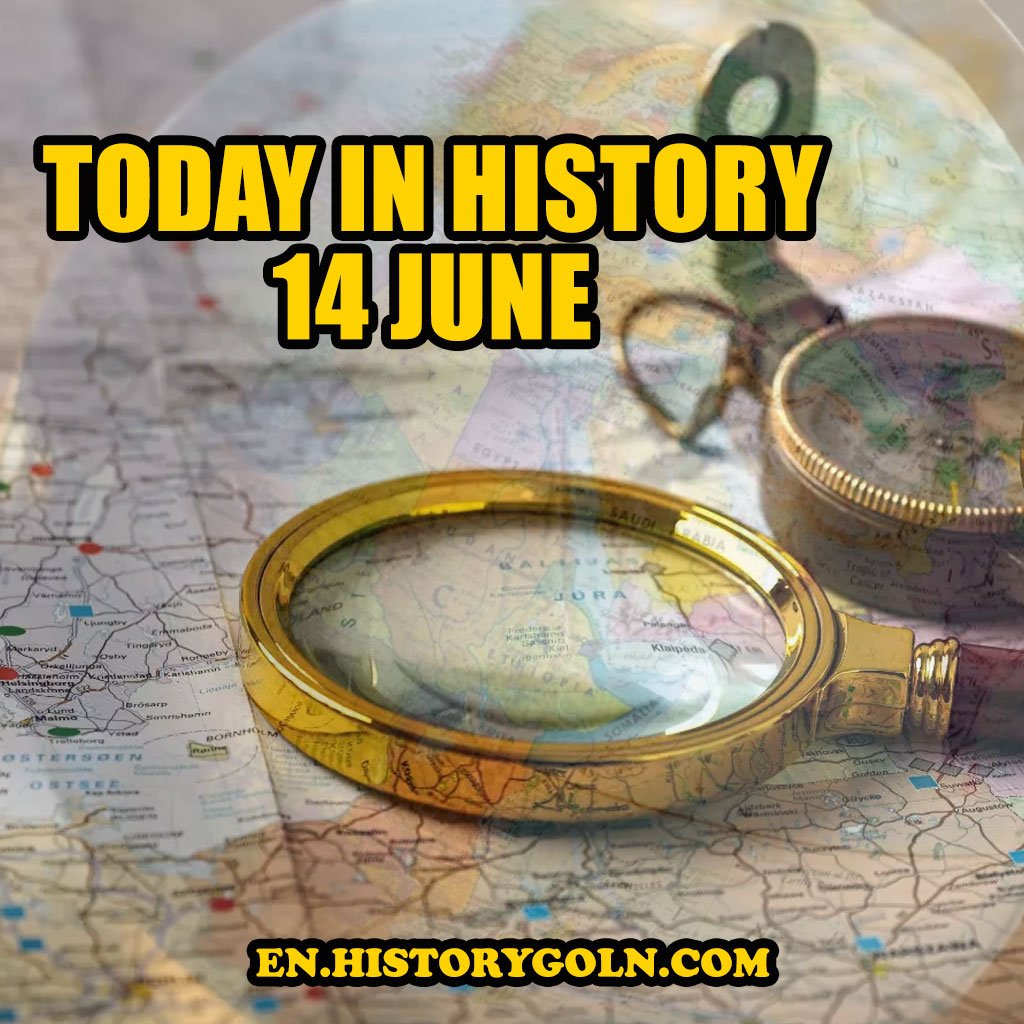Every date on the calendar bears testimony to the triumphs, tragedies, innovations, and pivotal moments that have shaped the course of human history. June 14 is no different. A journey through the annals of history on this day reveals a tapestry of events that have significantly influenced the world we live in. Let’s dive deep into the notable occurrences of June 14 throughout the years.
Today in History: 14 June

1158 – Munich Founded: On this day, Henry the Lion, Duke of Saxony and Bavaria, founded the city of Munich, which would eventually become Germany’s third-largest city and a significant cultural, educational, and technological hub.
1381 – The Peasants’ Revolt: One of the most dramatic episodes in English history took place as rebels arrived at Blackheath. The revolt stemmed from socio-economic pressures, high taxes due to the war with France, and the desire for more rights and better working conditions.
1645 – The Battle of Naseby: A decisive engagement of the English Civil War, the Battle of Naseby marked a significant victory for the Parliamentarians over the Royalists. It would prove instrumental in determining the course of the war in favour of the Roundheads.
1775 – U.S. Army Established: The Continental Congress authorized the creation of the Continental Army, marking the birth of the United States Army. This decision played a critical role in the American Revolutionary War and the eventual establishment of the United States of America as an independent nation.
1777 – Stars and Stripes: The same Continental Congress that established the U.S. Army also adopted the Stars and Stripes as the official flag of the United States. To this day, Flag Day is celebrated on June 14 in the United States.
1822 – Charles Babbage Proposes a “Difference Engine”: British mathematician and inventor Charles Babbage proposed his revolutionary “Difference Engine” in a paper to the Royal Astronomical Society. This mechanical computing device is considered a precursor to modern computers.
1900 – Hawaii Becomes a U.S. Territory: The Hawaiian Organic Act was signed into law, officially establishing Hawaii as a territory of the United States.
1928 – Birth of Che Guevara: Ernesto “Che” Guevara, a central figure in the Cuban Revolution and an iconic symbol of countercultural rebellion worldwide, was born in Rosario, Argentina.
1937 – Pennsylvania’s Terrible Tragedy: In one of the worst disasters in U.S. naval history, the USS Pennsylvania’s explosion resulted in the death of over two dozen people.
1940 – Auschwitz Receives Its First Polish Prisoners: The infamous concentration and extermination camp Auschwitz saw the arrival of its first Polish political prisoners. The camp would later become one of the primary sites of the Holocaust.
1954 – U.S. President Eisenhower signed “In God We Trust” into Law: President Dwight D. Eisenhower signed a bill into law that stated that all U.S. currency would bear the inscription “In God We Trust.”
1962 – The European Space Research Organisation is Established: This precursor to the European Space Agency was founded, marking a significant step in Europe’s space exploration endeavours.
1967 – Launch of Mariner 5: NASA launched Mariner 5 toward Venus, furthering the U.S.’s exploration of the solar system.
1982 – Falklands War Ends: Argentina surrendered to the United Kingdom, ending the ten-week-long Falklands War. The conflict resulted from Argentine and British disagreements over the territories of the Falkland Islands, South Georgia, and South Sandwich Islands.
1994 – The Vancouver Canucks Riot: After the Vancouver Canucks lost in the Stanley Cup Finals, fans rioted in the streets of Vancouver, resulting in significant property damage and numerous injuries.
2002 – Near-Earth Asteroid: A significant near-Earth asteroid, known as 2002 MN, passed within 75,000 miles (120,000 km) of Earth, one-third of the distance between Earth and the moon.
2017 – Grenfell Tower Fire: A tragic fire erupted in the 24-story Grenfell Tower block of flats in North Kensington, West London. This catastrophic event resulted in 72 deaths and over 70 injuries, making it the deadliest structural fire in the United Kingdom since the 1988 Piper Alpha disaster.
In Conclusion
The events of June 14 span a vast spectrum of human experience, from groundbreaking innovations and triumphant moments to devastating tragedies and conflicts. As we reflect upon this day, we gain insight into the progression of human society, the challenges faced, and the resilience demonstrated in the face of adversity.
History, with its myriad tales of struggle and success, offers us not just lessons but also inspiration. As we remember and recount the events of June 14, we are reminded of the indomitable human spirit’s ability to innovate, adapt, fight, and overcome. With each passing year, as we add new chapters to the narrative of June 14, we ensure that the legacies of those before us are remembered, their stories retold, and their contributions to our shared human story acknowledged and celebrated.
